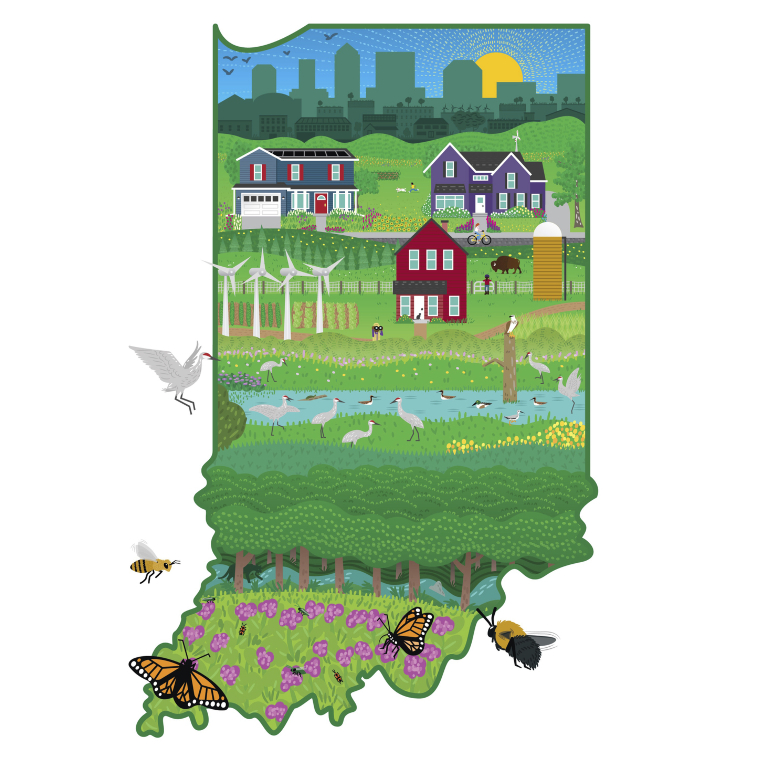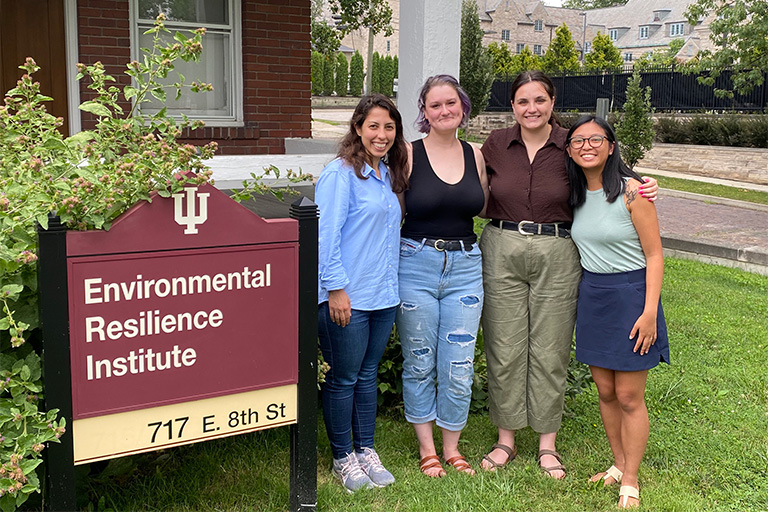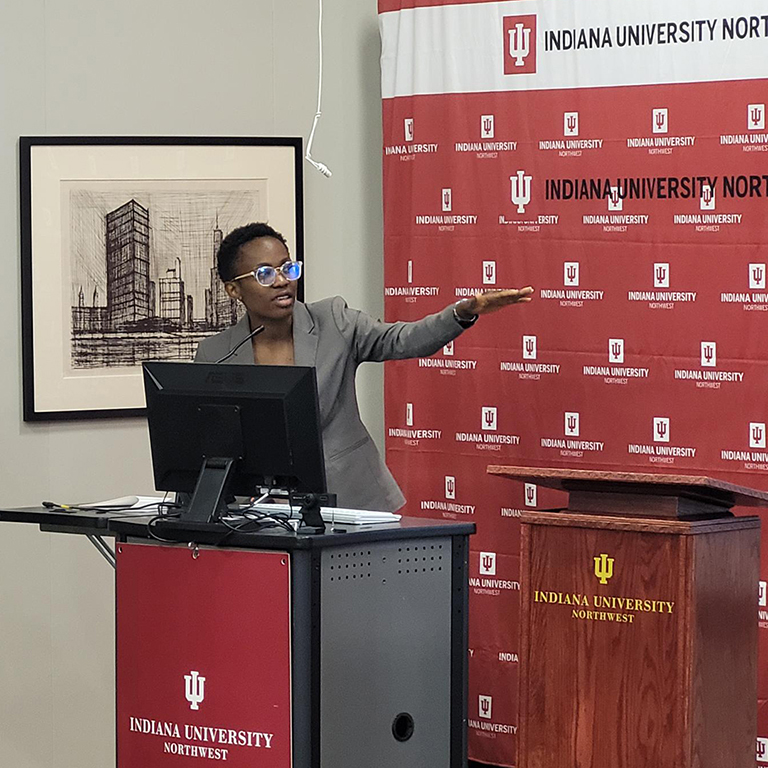As federal funding opportunities spurred increased interest in clean energy and climate and resilience projects in 2023, Indiana University’s Environmental Resilience Institute (ERI) played a central role in connecting Indiana communities and other stakeholders to increased capacity, resources, and knowledge for sustainability initiatives.

A hub to fund Hoosier resilience
In the spring, ERI and the IU Center for Rural Engagement launched the Indiana Resilience Funding Hub (IRFH) to help smaller Indiana communities compete for federal sustainability grants. The Hub disseminated information about available funding programs, assisted communities in assessing their environmental needs, and provided grant writing support for select partners.
In its first year, IRFH assisted partners in more than 40 different counties and supplied intensive support to proposals spanning community walkability, transportation safety, and clean energy. In October, the City of Rushville became the first IRFH partner to successfully garner an award, receiving a $788,000 grant from the US Department of Transportation to create an action plan for a 45-mile stretch of Indiana State Road 3.
In addition to working directly with communities, IRFH hosted six webinars on topics related to federal funding, including clean energy for rural communities, residential energy efficiency, Justice40, and federal incentives for tax-exempt entities.
Assessing communities' climate vulnerabilities
This year’s Resilience Cohort partnered with the Geos Institute to guide local governments through an assessment of their vulnerabilities to climate change and to help them make plans to address them. Participants included Bloomington, Carmel, Columbus, Gary, Monroe County, New Albany, South Bend, and Terre Haute.
Each local government recruited community experts to discuss which parts of the municipality were most at risk, as well as existing resources to help address those risks. Attendees’ local knowledge played an essential role in prioritizing risks and identifying climate vulnerabilities.
McKinney Climate Fellows, IU graduate and undergraduate students interested in sustainability career experiences, helped facilitate the process, organizing workshops, gathering local data, conducting community surveys, and presenting on local climate trends.



(Top) McKinney Climate Fellows Homa Taheri, Julie Garcia, Breanna Hume, and Ana Lim helped connect rural Indiana communities to federal sustainability grants through the Indiana Resilience Funding Hub. (Bottom left) McKinney Climate Fellow Isioma Nwayor worked with the City of Gary to assess the community's climate vulnerabilities and inform their resilience planning efforts. (Bottom right) ERI hosted the Indiana Sustainability and Resilience Conference at IUPUI in February, which included a session on cultivating an environmentally just state.
Advancing Hoosier organizations’ sustainability goals
In 2023, a record-high 40 IU students served as McKinney Climate Fellows, working with Indiana businesses, local governments, and non-profit organizations on sustainability projects. Fellows gained real-world career experience and provided sustainability expertise, leading projects such as sustainability strategic planning, community outreach, and environmental data collection. Host organizations included Earth Charter Indiana, Keramida, NSA Crane, Fischer Farms, and the Greater Indiana Clean Cities Coalition.
The 2023 cohort pushed the number of student fellowships in the program’s seven-year history to more than 200.
An award to expand urban tree canopies
In September, ERI secured a $5 million grant from the US Forest Service’s Urban and Community Forestry program to help underserved Hoosier communities expand their urban tree canopies and build climate resilience.
Over the next five years, the project aims to spur a 20% increase in the number of Indiana cities and towns engaged in equitable planning and management of urban trees. The grant also provides funds for planting and maintaining 2,500 trees in disadvantaged communities.
A gathering of Hoosier climate leaders
In February, ERI hosted the Indiana Sustainability and Resilience Conference, which returned to an in-person format for the first time since 2019. More than 350 Hoosiers gathered at the IUPUI Campus Center for the event to learn, connect, and share knowledge to advance climate resilience in the Hoosier State.
Janet McCabe, deputy administrator of the US Environmental Protection Agency (EPA) and former ERI director, delivered the conference’s keynote address, highlighting the EPA’s role in regional climate solutions, federal funding opportunities, and the agency’s approach to environmental justice.
About the Environmental Resilience Institute
Indiana University’s Environmental Resilience Institute brings together a broad coalition of government, business, nonprofit, and community leaders to help Indiana and the Midwest better prepare for the challenges of environmental change. By integrating research, education, and community, ERI is working to create a more sustainable, equitable, and prosperous future. Learn more at eri.iu.edu.


